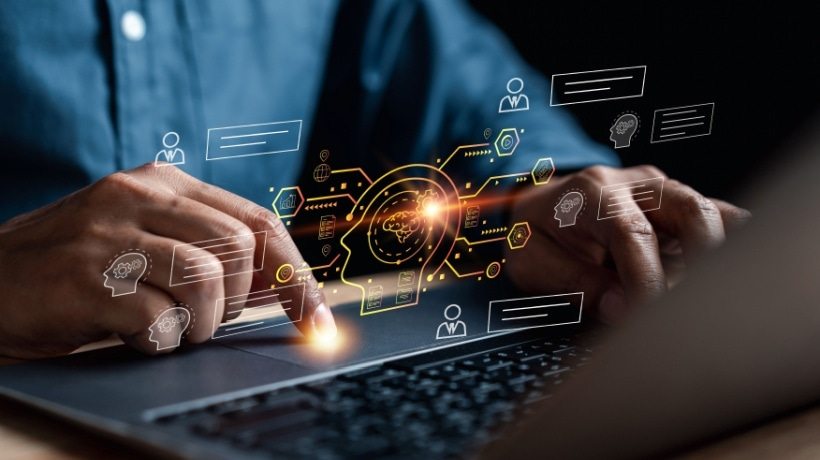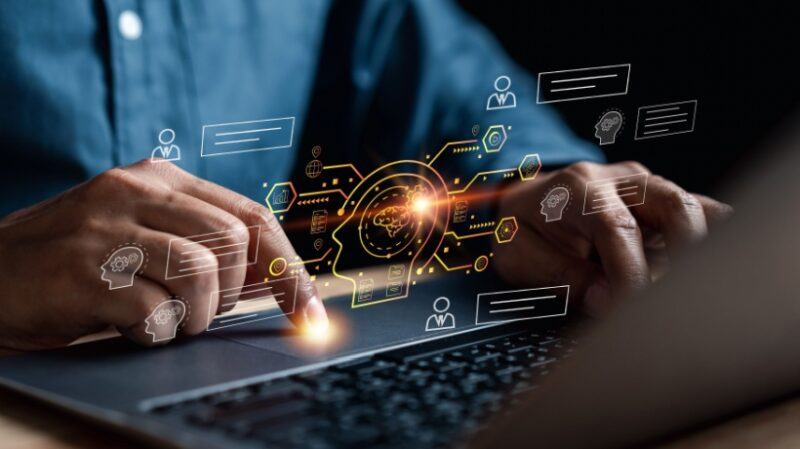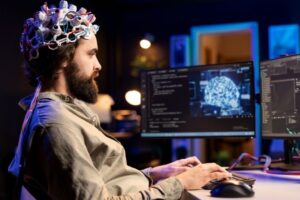
Generative AI In An LMS: The Future Of Learning

Generative AI Transforms LMS Learning
Generative Artificial Intelligence (AI) is steering our learning and teaching processes toward a profound transformation. Generative AI has begun to be utilized in distance education systems. Learning Management Systems (LMSs) are rapidly implementing this transformation. Let’s discuss what will change with the use of generative AI within LMS platforms.
Smart Learning Assistants Are Coming!
Within the LMS, students can access information through smart learning assistants available 24/7. These tools can be used in various areas, from practicing conversations in foreign language courses to solving complex math problems. These tools can provide the guidance students need. They can offer both technological/technical and pedagogical support within the LMS, a level of assistance that was previously rarely available in such systems.
Interactive And Gamified Learning Opportunities
Generative AI can enable students to engage more interactively within the LMS. Research shows that students who actively and effectively interact within an LMS achieve higher success rates. Spending more time in the LMS also enhances student achievement. With new AI applications and practical solutions, gamification elements can be effectively integrated into the LMS. Gamification can make students’ learning more permanent and engaging.
Significant Support For Educators
Whether they have used an LMS before or not, educators can effectively utilize an LMS with the support of AI tools. When educators leverage these AI tools while using LMS features, it can help students spend their time more productively within the system. With the use of generative AI in an LMS, learning analytics can be utilized much more efficiently and effectively by educators. Analytics such as identifying which students face learning challenges, which learning materials are effective, or which lesson videos are less viewed can enhance educators’ efficiency within the LMS.
Generative AI not only enables teachers to quickly produce lesson materials but also provides significant opportunities for their long-term integration into the LMS. Teachers can rapidly prepare SCORM packages for their lessons using suggestions provided by generative AI tools.
Transition To A Multicultural Ecosystem
Generative AI tools can serve as a significant facilitator within an LMS for students who speak different languages. Customizing course content to suit various languages, cultures, and student groups is a crucial step toward fostering inclusivity in education. For instance, course materials can be automatically adapted to a student’s native language or cultural context, making learning more accessible and meaningful, especially in environments with international student groups. Moreover, advancements in real-time translation technologies enable students to communicate and interact swiftly with peers from different linguistic backgrounds.
This feature fosters a multicultural learning ecosystem within LMS platforms, allowing students to collaborate in a global setting. For example, in a group project, students from different countries can overcome language barriers to work toward shared goals. This not only eliminates linguistic obstacles but also creates a learning environment enriched by cultural diversity, promoting cross-cultural collaboration and understanding.
Enriching Personalized Learning Experiences
Within an LMS, generative AI can create tailored learning pathways based on students’ individual needs, prior learning experiences, learning styles, and past academic achievements. This enables each student to progress through the LMS platform at their own pace and in a manner suited to their preferences. For instance, a student who prefers visual learning might receive more infographics and video content, while a reading-oriented student could be provided with text-based materials.
Generative AI can design simple and rapid assessment tests to identify knowledge gaps. Based on the results, it can pinpoint areas where students struggle and offer personalized learning materials and guided recommendations. For example, a student facing difficulties with algebra in a math course could be provided with AI-generated supplementary exercises or explanatory videos. This approach helps students address their weaknesses quickly while boosting their learning motivation.
The integration of generative AI into an LMS makes learning processes more efficient, effective, and individualized, holding the potential to revolutionize education. These technologies enable students to fully realize their potential, making education more equitable and accessible.
Conclusion
In summary, the use of generative AI applications within an LMS offers significant opportunities for both students and teachers. This technology presents a digital transformation opportunity unprecedented in the history of education. Benefits such as tailored learning experiences for students and more efficient content creation for teachers have the potential to fundamentally reshape educational processes. To seize this opportunity, we must rapidly and effectively integrate generative AI tools into our LMS platforms. Technological integrations in this direction are of great importance for enhancing the quality of education and creating a more inclusive and accessible learning environment.
Source link



